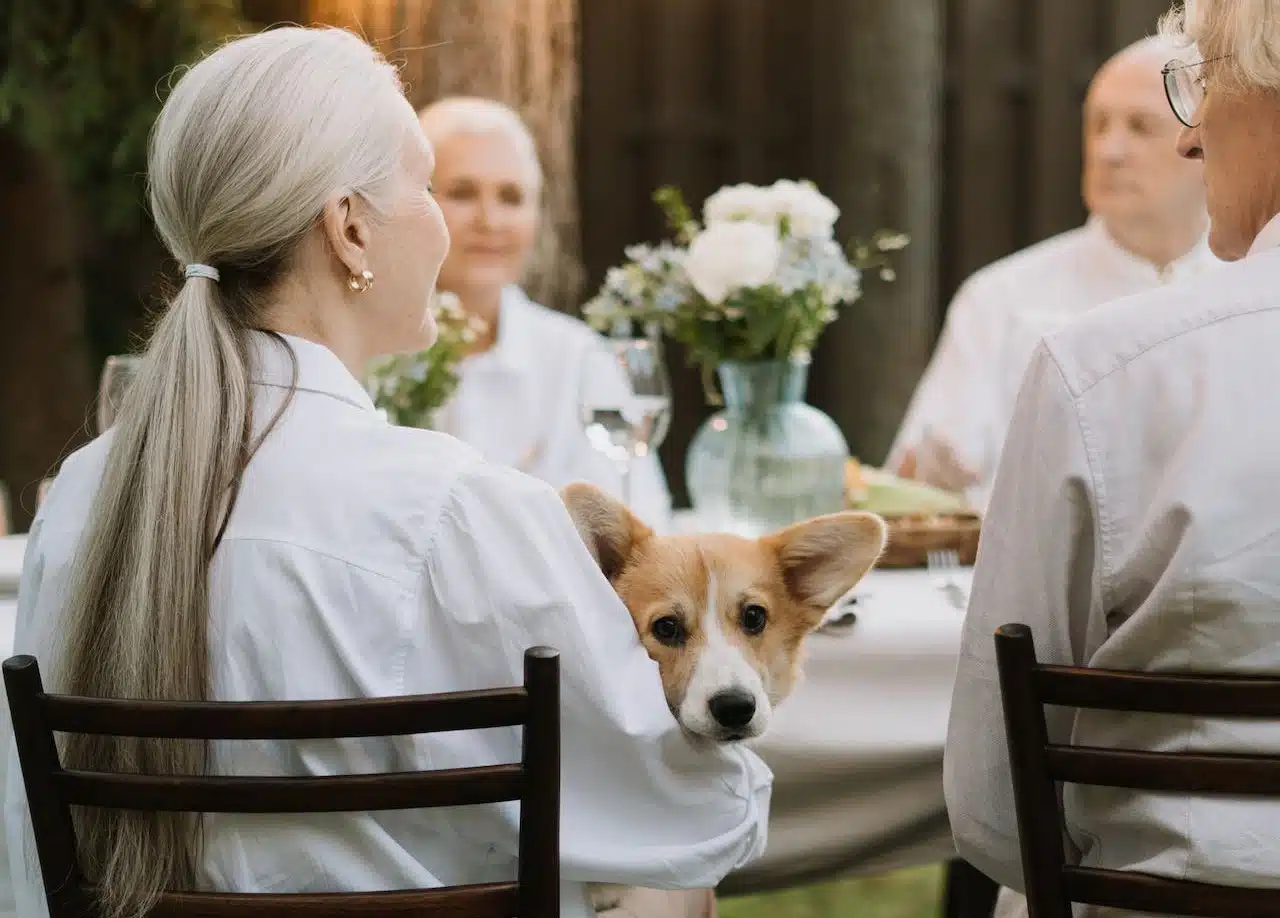Home » Blog » Pet » Pets: Understanding Them » The Beautiful Basset Hound: Personality, Health and History
Categories
Tags
animal welfare
breed profile
buying a car
buying a pet
Car
car accessories
car care
car features
car insurance
Car safety
car sales
car service
cat
cat behaviour
cat body language
Cat Breeds
cat food
cat insurance
comprehensive car insurance
Dog
Dog Behaviour
dog body language
Dog Breeds
dog food
Dog Insurance
dog training
eco friendly cars
Kitten
New Car
pet accessories
pet activities
Pet Adoption
pet breeders
pet days of the year
pet fun stuff
Pet Health
pet insurance
pet parenting
Pet Safety
pet services
Puppy
rescue pets
road safety
road trip
safe driving
Recent Blog:
Facebook Posts
2 days ago
Growing old sometimes means we can’t take care of pets anymore. Find out some advice on what to do when this happens:![]()
![]() Senior Pet Parents – Contingency Plans for Your Pet – bit.ly/44bzwkS
... See MoreSee Less
Senior Pet Parents – Contingency Plans for Your Pet – bit.ly/44bzwkS
... See MoreSee Less
Senior Pet Parents' Contingency Plans for Pets
www.pd.com.au
Sometimes senior pet parents need more downtime. For older pet owners, this can be tricky to navigate if their dog or cat is full of beans and wants to4 days ago
Before you rev up the engine, let’s run through a checklist of things to do before starting your car. Not only do these steps ensure your safety (and that of others around you), but they also help in maintaining your vehicle's longevity.![]()
![]() Driving Tips: Your Checklist Before Starting Your Car -
... See MoreSee Less
Driving Tips: Your Checklist Before Starting Your Car -
... See MoreSee Less
Driving Tips: Your Checklist Before Starting Your Car
www.pd.com.au
Heading out for a drive? Hold up a second! Whether you're dashing off to work, running errands, or embarking on a road trip adventure, there are a few1 week ago
Are intestinal worms setting up camp in your dog’s gut without paying rent? Here’s how to spot the main culprits and get rid of them too:![]()
![]() Preventing, Identifying and Treating Intestinal Worms in Dogs - bit.ly/43YjCKu
... See MoreSee Less
Preventing, Identifying and Treating Intestinal Worms in Dogs - bit.ly/43YjCKu
... See MoreSee Less
Preventing, Identifying and Treating Intestinal Worms in Dogs
www.pd.com.au
Intestinal worms, such as roundworms in dogs are one of the least glamorous topics on the planet. These intestinal parasites that basically use our dogsThe Basset Hound is famous for its long droopy ears, sad eyes, stumpy legs, and wrinkled face. If a four-legged addition to the family is in the pipeline, getting your hands on Basset Hound puppies may speed up the process. We think they’re too soft and soulful to resist! Of course, there’s a lot more to know about these fur babies, commonly referred to as Bassets. So….
To help with your decision, let’s unpack some important things like the Basset Hound dog’s history, personality, and common health issues.
Where it all began for Basset Hound puppies
The Basset Hound breed holds roots in France and Belgium, having originally descended from the 6th century hounds of St Hubert of Belgium. According to Wikipedia, controlled breeding of short haired Basset Hound puppies began in 1870 by the French. They started being imported into England around the same time then slowly made their way elsewhere.
This breed’s short legs, caused by a form of dwarfism, were actually a big advantage back in the days before they were a companion animal. Bassets were bred to lead hunters to prey like rabbit and deer with their impressive sense of smell. Apparently their ability to ‘ground-scent’ is surpassed only by the Bloodhound.
In French, the word “bas” means low, which aptly describes a Basset’s stumpy stature. Today, the Basset Hound breed is one of six recognised ‘Basset’-type breeds.
Basset Hound personality snapshot
The Basset Hound is a warm and happy-go-lucky pooch. Their even temper and affectionate nature make them great companions for children, from when they’re Basset Hound puppies right through to their senior years.
Although they’re independent and aren’t as active as some of their canine companions, Bassets require some exercise to keep them healthy. A daily walk should do the trick.
They’re intelligent but have a stubborn streak, which makes Basset Hound puppy training challenging. Like most dogs, food or treats can help sway them into following your positive reinforcement dog training.
Bassets have a loud bark, which they flex to show frustration or excitement. They’re usually adaptable but can sometimes be protective of their home and surroundings. Despite this, the natural hunter instinct within a Basset Hound can result in them straying away from home.
If you’re looking for a low to the ground pup that’s more high energy read our Jack Russell article.

Health issues found in Bassets
Bassets adore eating, which makes them an elevated risk for obesity. Their love for food and low energy state causes them to gain weight easily – and we all know excess weight also causes strain on the joints. With their short and stumpy legs, Bassets are prone to a condition called elbow and hip dysplasia in dogs. Other joint illnesses can also lead to arthritis.
Skin, ear, and joint illnesses are common among these pups too. Although allergies to things like dust mites, pollen and certain foods can affect any dog, a Basset’s droopy ears makes them more prone to this. A skin infection called Malassezia is also common among them.
As for their specs, once they grow from Basset Hound puppies to full size both males and females weigh between 18 to 36kg. Males end up slightly taller, however, at 36cm in height versus females at 33cm.
Feeding tips for Basset Hound puppies and older dogs
No feeding these dogs leftovers or scraps from the kids’ plates. Instead, carefully control a Bassets’ diet to avoid the obesity risks we mention above. Feed them a healthy-balanced diet of high-quality pet food made for a medium to large breed dog.
Vets suggest you deliver a mature Basset Hound two to three meals daily with a slow-feeding bowl. Remember these hounds have a keen sense of smell so don’t leave food unattended.

A grooming guide for a Basset fur baby
Although you won’t be breaking the bank to maintain a Basset’s short fur, brush them daily to help reduce shedding. It’s also advisable not to skip on baths as their skin can get greasy and smelly. So, make sure to pencil in a good wash every one or two weeks. Dry the folds in their skin to prevent infections.
Clean any excess eye mucous or discharge using warm water and a face towel. Consider scheduling a visit to the vet if the discharge is yellow or green and your baby’s eyes seem red. Also check out our article on eye infections in dogs to arm yourself on what to look out for.
Their droopy ears also make it easier for a Basset Hound to catch nasty and painful ear infections. If this is the case, speak to your vet and they’ll likely suggest using a medicated wash once or twice a week to clean the inside of their ears.
It’s also worth noting that these babies drool…a lot! So, you may want to pack away that favourite rug.
Planning for Bassets’ injuries and illnesses
No matter what type of dog you decide to welcome into your home, it’s worth considering pet insurance to help provide a cushion during unexpected medical emergencies.
At PD Insurance we know being a pet parent is one of life’s greatest delights but with the heart-string tugs come concerns about affording medical treatment. That’s why pet insurance is crucial for responsible pet owners when illness or injury strikes. And it doesn’t have to be complicated or expensive.
Share On:




